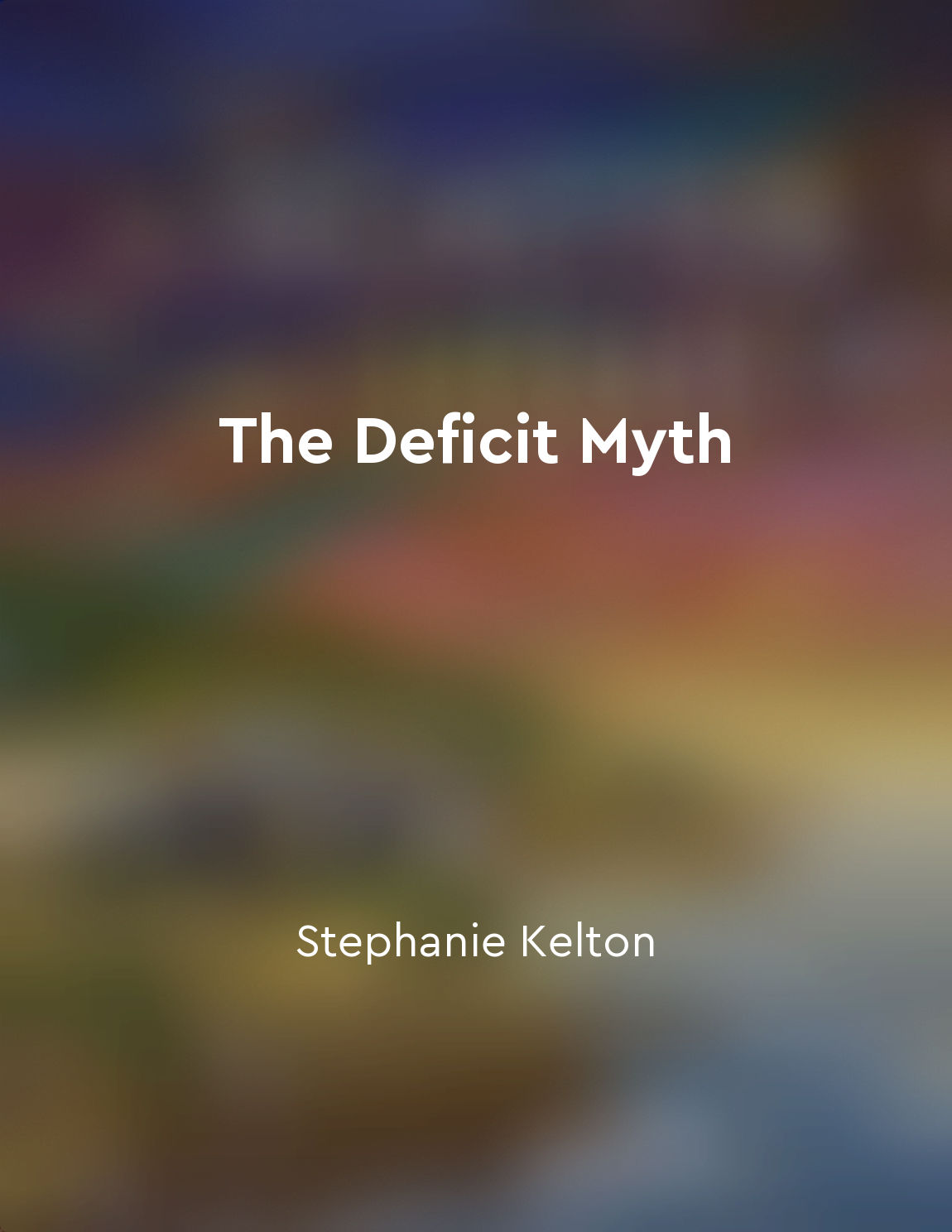The government doesn't need to balance its budget like a household from "summary" of The Deficit Myth by Stephanie Kelton
The notion that the government must operate its budget in the same way a household does is deeply ingrained in our collective understanding of economics. We are taught to believe that just like individuals, the government must balance its books, live within its means, and avoid excessive debt. This analogy is frequently used by politicians and pundits to justify austerity measures, cutbacks in social programs, and other policies that prioritize deficit reduction above all else. However, this comparison is fundamentally flawed and misleading.
Unlike a household, the government has the unique power to issue its own currency. This means that it can never "run out of money" in the way that a household can. The government can always create more money to pay its bills, regardless of its tax revenue or borrowing capacity. This ability to issue currency gives the government an enormous amount of flexibility when it comes to managing its budget. It can spend money into the economy to support growth, create jobs, and invest in critical infrastructure without the same constraints that limit individual households.
Furthermore, the government's budget is not like a household budget in other key ways. For example, when the government spends money, it doesn't just disappear from the economy. Instead, it circulates through the economy, generating income and creating economic activity. This means that government spending can actually stimulate economic growth and increase overall prosperity. In contrast, when a household spends money, it is removed from the economy, reducing overall demand and potentially leading to economic stagnation.
Additionally, the government's budget is closely linked to the overall health of the economy. In times of economic downturn or recession, the government can use deficit spending to boost demand, create jobs, and stimulate growth. By running a deficit during tough times, the government can help stabilize the economy and prevent further downturns. This countercyclical approach to budgeting is a powerful tool for ensuring economic stability and promoting long-term prosperity.The idea that the government must balance its budget like a household is a misconception that has led to harmful economic policies and unnecessary austerity measures. By understanding the unique powers and responsibilities of the government, we can develop more effective and equitable budget policies that promote economic growth, job creation, and shared prosperity for all.

Open in app
The road to your goals is in your pocket! Download the Oter App to continue reading your Microbooks from anywhere, anytime.


